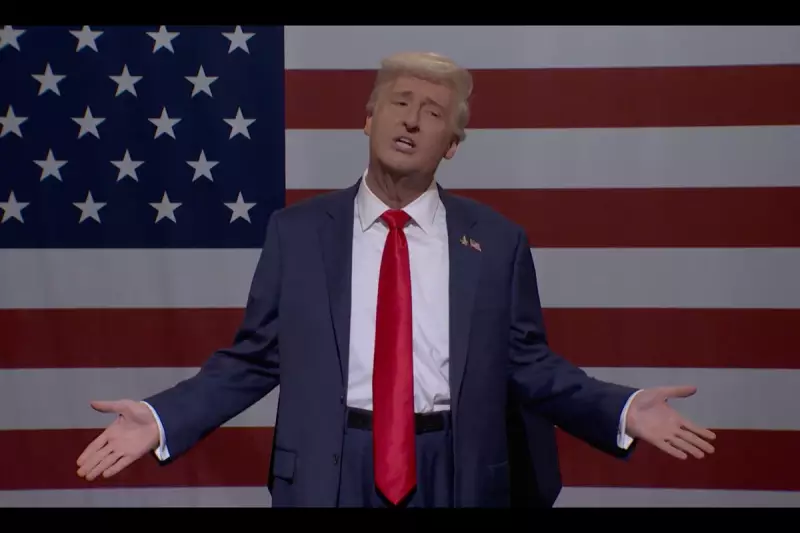
In an unprecedented move that has raised eyebrows across political and entertainment circles, former President Donald Trump has unleashed a blistering attack on Saturday Night Live, demanding "equal time" from broadcast networks following the show's latest political sketches.
Presidential Fury Over Late-Night Comedy
The White House issued an official statement expressing Trump's outrage at the long-running NBC comedy show, particularly targeting its portrayal of his administration and policies. The statement emerged hours after Bad Bunny hosted the programme, which featured several sketches parodying the President and his team.
Trump's complaint centres on what he describes as "one-sided coverage" masquerading as entertainment, arguing that the broadcast networks should be forced to provide balancing coverage under the FCC's equal-time rules.
Legal Experts Question Equal-Time Argument
Media law specialists have been quick to point out the flaws in Trump's legal reasoning. The equal-time rule specifically exempts news interviews, documentaries, and crucially - entertainment programmes. Saturday Night Live, as a sketch comedy show, falls firmly outside the regulation's scope.
"This represents a fundamental misunderstanding of broadcast regulations," explained First Amendment attorney Sarah Jenkins. "The equal-time rule was designed for political candidates during election periods, not for protecting sitting presidents from satire."
Bad Bunny Episode Draws Presidential Ire
The particular episode that triggered Trump's response featured Puerto Rican rapper Bad Bunny in his debut hosting role. Sketches included portrayals of White House press briefings and Trump's approach to various policy matters, all delivered with the show's characteristic satirical edge.
This isn't the first time Trump has clashed with the comedy institution. During his 2016 campaign, he famously appeared on the show himself, though his relationship with the programme has deteriorated significantly since taking office.
Broader Implications for Political Satire
The incident raises important questions about the role of political satire in a democratic society. Many commentators have defended SNL's right to parody public figures, noting that such humour has been part of American political culture for decades.
"From Chevy Chase's Gerald Ford to Will Ferrell's George W. Bush, Saturday Night Live has always satirised sitting presidents," noted media historian Professor Michael Evans. "What we're seeing now is an unprecedented attempt to challenge that tradition."
The controversy comes at a time when the relationship between the Trump administration and the media remains deeply strained, with the President frequently describing critical coverage as "fake news" and attacking specific news organisations on social media.
As the debate continues, both free speech advocates and administration supporters are watching closely to see if this represents a one-off complaint or the beginning of a more sustained challenge to political satire in American broadcasting.





